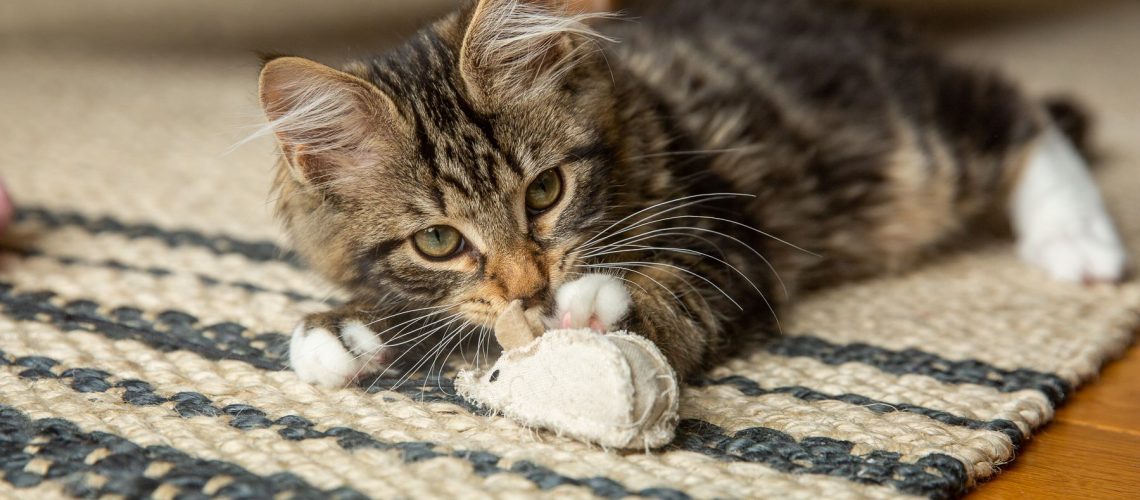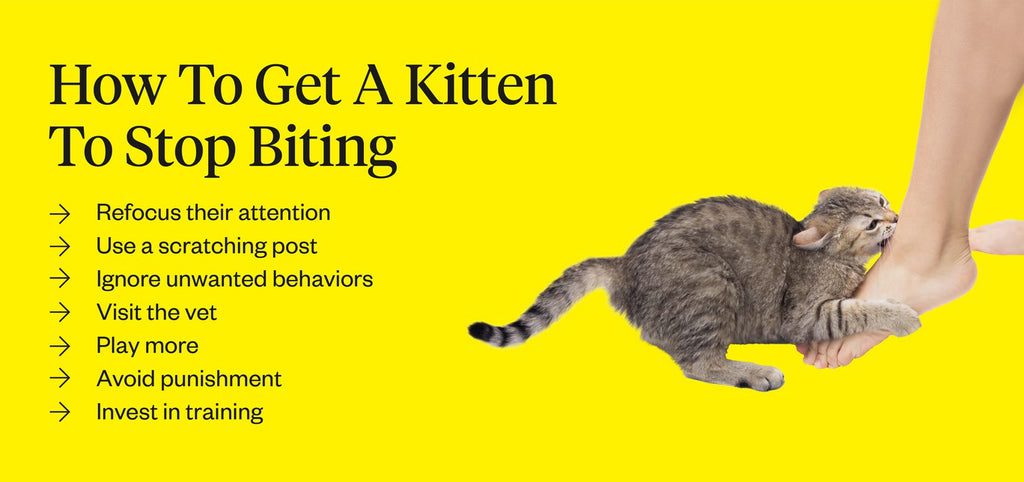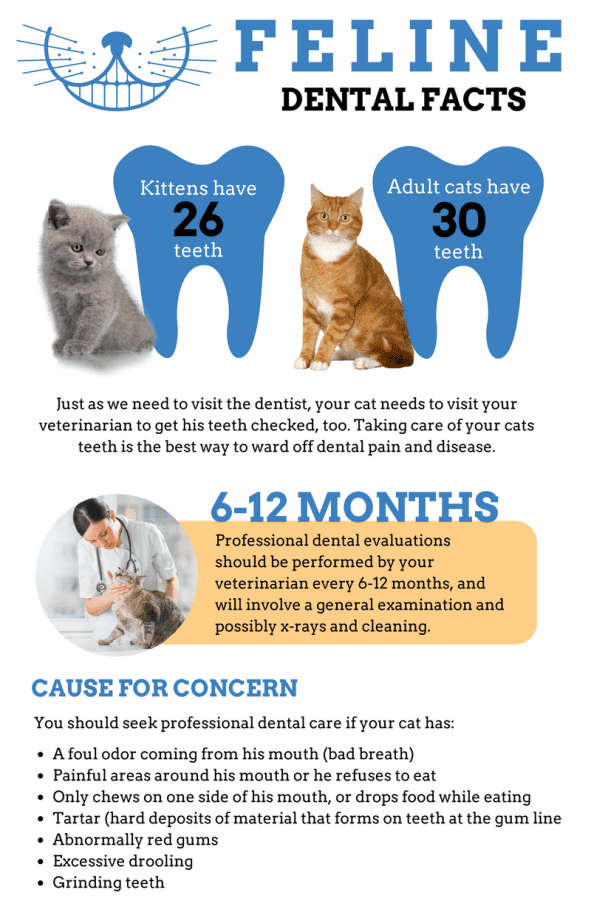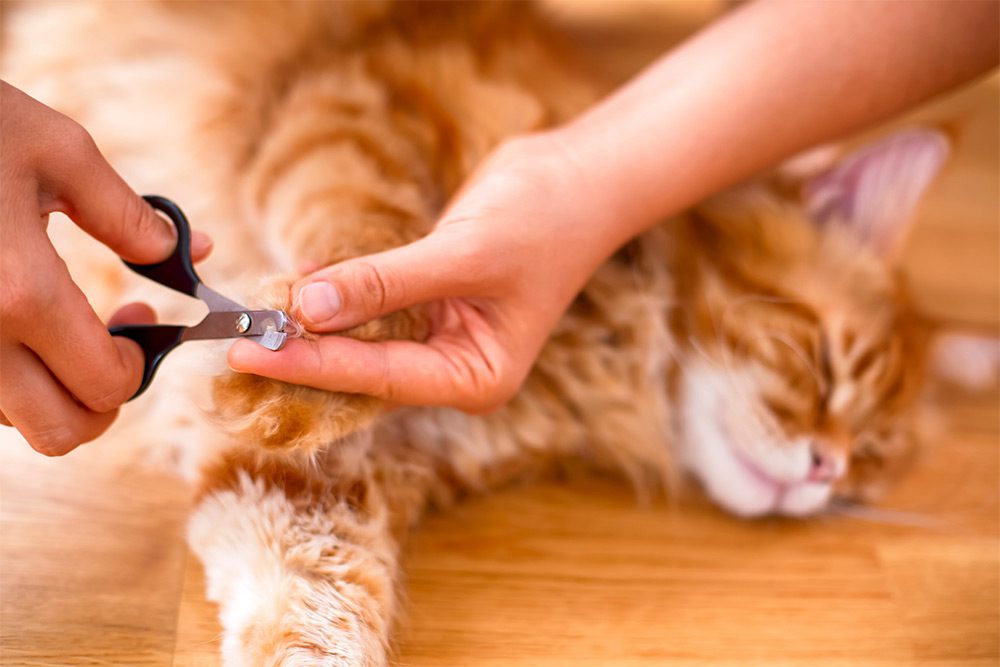Are you tired of your cute little kitten turning into a ferocious ball of claws and teeth? Do you dream of a peaceful coexistence with your furry friend, free from scratches and bites? Look no further! In this article, we will uncover the secrets to stopping aggression in kittens and bringing harmony back into your home. Understanding this topic is essential because it not only ensures the safety of yourself and others but also contributes to the overall well-being of your feline companion.
By delving into this subject, you will gain valuable insights into the underlying causes of aggression and learn effective techniques to address them. Did you know that over 50% of cat owners struggle with aggressive behavior in their kittens? But fear not, as we are here to guide you through this journey towards a more peaceful relationship with your furry friend. So, let's unlock the secrets to stopping aggression in kittens and create a loving bond that lasts a lifetime.
Key Takeaways:
- Provide plenty of mental and physical stimulation to prevent boredom, which can lead to aggression in kittens.
- Teach proper play techniques and discourage rough play, as this can escalate into aggressive behavior.
- Establish a routine and provide consistent discipline to help kittens understand boundaries and acceptable behavior.
- Ensure kittens have a safe and comfortable environment, with hiding spots and vertical spaces, to reduce stress and potential triggers for aggression.
- Consider consulting with a veterinarian or animal behaviorist for professional guidance if the aggression persists or worsens despite your efforts.
Understanding Aggression in Kittens: Why It's Important to Address
Aggression in kittens is a common behavior issue that can cause problems if not addressed. It's important to understand why kittens become aggressive and how to handle their behavior. Aggression can be seen in different forms, such as biting, scratching, hissing, or growling. If left unchecked, this aggression can escalate and lead to injuries for both the kitten and their human companions.
Addressing aggression in kittens is crucial for their well-being and the harmony of your household. By addressing the issue early on, you can prevent it from becoming a long-term problem. It's essential to provide proper training and socialization to teach your kitten appropriate behaviors. Understanding the causes of aggression will help you find effective solutions that work for your furry friend.
Why is it important?
Addressing aggression in kittens is important because it helps create a safe and peaceful environment for everyone involved. Aggressive behavior can be stressful for both the kitten and their human family members. By addressing the issue promptly, you can prevent any potential harm or injuries caused by the kitten's aggression.
Failing to address aggression in kittens can also lead to long-term behavioral issues that are more challenging to correct later on. It's easier to modify a kitten's behavior when they are young and still learning about appropriate social interactions. By addressing aggression early on, you set your kitten up for success in becoming a well-adjusted adult cat.
Recognizing Signs of Aggression in Kittens: What to Look For
Recognizing signs of aggression in kittens is essential for understanding their behavior better and taking appropriate action. Kittens may display various signs of aggression when they feel threatened or stressed. These signs include hissing, growling, swatting, biting, scratching, or puffing up their fur.
It's important to differentiate between play aggression and true aggression. Play aggression is common in kittens and usually involves biting and scratching during playtime. However, true aggression is more intense and can be directed towards people or other animals without any playful intent.
Signs of aggression:
- Hissing
- Growling
- Swatting
- Biting
- Scratching
- Puffing up fur
If you notice any of these signs in your kitten's behavior, it's important to address them promptly to prevent the escalation of aggression.
Possible Reasons for Kitten Aggression: Understanding the Causes
1. Fear or Anxiety
Kittens may exhibit aggression when they feel afraid or anxious. This can be triggered by new environments, loud noises, or unfamiliar people or animals. When a kitten is fearful, it may lash out with aggressive behavior as a way to protect itself.
2. Lack of Socialization
Proper socialization is crucial for kittens to learn appropriate behavior and develop good manners. If a kitten has not been exposed to different people, animals, and experiences during its early weeks of life, it may become aggressive due to fear or uncertainty in unfamiliar situations.
3. Redirected Aggression
Sometimes, kittens may redirect their aggression towards humans or other pets when they are unable to target the source of their frustration. For example, if a kitten sees another cat outside the window and becomes agitated but cannot reach the cat, it may take out its frustration on nearby individuals.
Understanding these potential causes of kitten aggression can help owners address the underlying issues and create a more harmonious environment for their furry friends.
Simple Techniques to Prevent Kitten Aggression: Tips for a Peaceful Environment
1. Provide Plenty of Toys and Scratching Posts
Engaging your kitten in playtime with appropriate toys can help redirect its energy and prevent boredom-induced aggression. Additionally, providing scratching posts allows kittens to fulfill their natural instinct to scratch without damaging furniture or belongings.
2. Establish Consistent Rules and Boundaries
Setting clear boundaries from the beginning helps kittens understand what behaviors are acceptable and what are not. Consistency is key in enforcing these rules so that your kitten learns proper behavior over time.
a) Use Positive Reinforcement
Rewarding your kitten with treats or praise when it displays good behavior reinforces positive habits and encourages it to continue behaving well.
b) Avoid Physical Punishment
Physical punishment can lead to fear and aggression in kittens. Instead, focus on redirecting their attention or using deterrents like a spray bottle filled with water to discourage unwanted behaviors.
3. Provide a Safe Space
Creating a designated safe space for your kitten, such as a cozy bed or a quiet corner, allows it to retreat when feeling overwhelmed or stressed. This helps prevent aggressive reactions triggered by fear or anxiety.
By implementing these simple techniques, you can create a peaceful environment that promotes positive behavior in your kitten.
The Role of Playtime in Reducing Kitten Aggression: Fun Ways to Interact
1. Interactive Toys
Engaging your kitten with interactive toys not only provides mental stimulation but also helps release pent-up energy. Toys that mimic prey-like movements, such as feather wands or laser pointers, can be particularly effective in channeling their natural hunting instincts.
2. Regular Play Sessions
Scheduling regular play sessions with your kitten ensures they receive adequate exercise and social interaction. Aim for at least two 15-minute play sessions per day to keep them entertained and reduce the likelihood of aggressive behavior due to boredom.
a) Incorporate Puzzle Toys
Using puzzle toys during playtime adds an extra challenge for your kitten and stimulates their problem-solving skills. These toys often dispense treats as rewards, making playtime more rewarding and enjoyable.
b) Rotate Toys
To keep playtime exciting, rotate the toys available to your kitten every few days. This prevents them from getting bored with the same toys and encourages exploration and engagement.
Regular playtime not only helps reduce aggression but also strengthens the bond between you and your kitten.
Environmental Factors that Contribute to Kitten Aggression: Modifying the Environment
1. Reduce Stressors
Identify and minimize potential stressors in your kitten's environment. This can include loud noises, excessive handling, or conflicts with other pets. By creating a calm and peaceful atmosphere, you can help alleviate aggression triggered by environmental factors.
2. Provide Vertical Spaces
Cats naturally enjoy climbing and perching on high surfaces. Providing vertical spaces such as cat trees or shelves allows your kitten to observe its surroundings from a safe vantage point, reducing feelings of vulnerability and potential aggression.
a) Install Window Perches
Window perches offer kittens a view of the outside world, stimulating their curiosity and providing entertainment. This can prevent boredom-induced aggression caused by lack of mental stimulation.
b) Create Hiding Spots
Having hiding spots throughout your home gives kittens a sense of security when they need some alone time or feel overwhelmed. These hiding spots can be as simple as cardboard boxes or dedicated cat caves.
By modifying the environment to cater to your kitten's needs, you can create a more peaceful and stress-free living space for both of you.
Knowing When to Seek Professional Help for Aggressive Kittens: When It's Time for Expert Assistance
If despite your best efforts, your kitten's aggression persists or escalates, it may be necessary to seek professional help from a veterinarian or animal behaviorist. Some signs that indicate it's time for expert assistance include:
- Aggression that causes injury to humans or other animals.
- Aggression that is unpredictable or occurs without warning.
- Aggression that continues even after implementing behavior modification techniques.
- Aggression accompanied by other concerning behaviors like excessive fear or anxiety.
A professional can assess your kitten's behavior, identify any underlying medical issues, and provide tailored guidance to address the aggression effectively. Remember, seeking expert help is a proactive step towards ensuring the well-being of your kitten and maintaining a harmonious household.
In conclusion, aggression in kittens can be stopped by providing proper socialization, training, and a safe environment. By understanding their needs and using positive reinforcement techniques, we can help kittens grow into well-behaved and happy cats.
Is it normal for kittens to be aggressive?
Cats and kittens that were not raised with other littermates or do not have chances to play often exhibit play aggression as the most common behavior. Developing proper play skills is an essential aspect of a cat's socialization, and this is typically learned during interactions with littermates.
At what age do kittens stop being aggressive?
When kittens do not have other playmates, they may switch abruptly from being affectionate to biting. However, if you adopt a pair of kittens, they can play with each other and eventually outgrow this behavior by the time they are around 9 to 12 months old.
Why is my kitten so angry and aggressive?
If a kitten feels threatened or invaded by another animal or small child, it may display aggression as a way to protect its territory. While this behavior is initially normal, if it continues for a long period of time, it may be necessary to intervene and address the issue.
How do you discipline a kitten?
One method of training kittens involves rewarding them with praise and affection when they jump onto appropriate surfaces, while reprimanding and removing them from surfaces that are not allowed. Using a spray bottle can also be helpful in teaching them to avoid specific surfaces.
Will catnip calm an aggressive cat?
Studies indicate that catnip interacts with receptors in a cat's brain, causing them to experience feelings of happiness. Initially, the herb stimulates and excites the cat, but it eventually helps to relax and reduce their aggressive behavior.
What age are kittens most aggressive?
Kittens reach the peak age for play aggression at approximately nine months old. Most kittens naturally start to decrease their play aggression around the age of 1.5 years old.

















